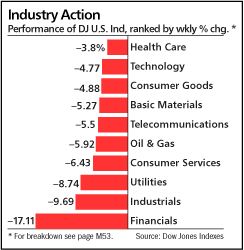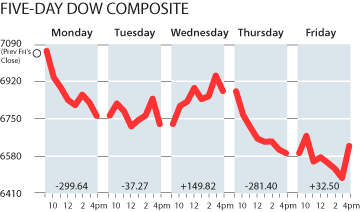Thanks to our politicians (Republicans and Democrats) Medicare and Social Security are going bankrupt and will be unable to meet future obligations (see below). Taxes must be raised on taxpayers and/or cuts made to beneficiaries. What's the solution? My answer to this is to means test benefits for the wealthy, cut some benefits (for example the $250.00 SS death benefit), raise Medicare and SS payroll taxes but offset the tax increase with an accompanying decrease in the income tax rate. The decrease in the income tax rate must be in conjunction with a decrease in discretionary program funding.
Paulson: Action needed on Social Security
Federal government will need to pay back what it owes program starting in 2017, according to report released Tuesday.
NEW YORK (CNNMoney.com) -- Treasury Secretary Henry Paulson, saying that Social Security is "financially unsustainable," called Tuesday for quick action to keep the system strong and released a report detailing the program's funding shortfalls.
The federal government will have to start paying back what it owes the Social Security trust fund in 2017 so the program can continue paying 100% of benefits. By 2041, if the system is left unchanged, Social Security will only be able to pay out 78% of benefits promised to future retirees.
Those are two key estimates in the Social Security and Medicare trustees' 2008 annual report.
Shoring up Social Security is one of the main economic issues that will face the next president. Most proposals involve raising taxes or reducing benefits. Democrats typically have opposed benefit reductions while Republicans have opposed tax increases.
"This year's Social Security Report again demonstrates that the Social Security program is financially unsustainable and requires reform," Paulson said at a briefing. "The sooner we take action ... the less drastic needed changes will be."
For years, the Social Security program has been taking in more in payroll taxes from existing workers than it needed to fund benefits. The government borrowed that surplus and promised to pay it back with interest by issuing special issue bonds to the program.
But the proceeds from those bonds are finite, which is why the trustees estimate that the trust fund will run dry by 2041. Without that cushion, Social Security would only be able to pay out the money it collects in payroll taxes.
Demographics are a major reason for the funding shortfall. The number of workers, compared to retirees, has begun to shrink. That means the system will produce a smaller surplus, then none at all, and eventually it won't be able to pay out all benefits promised to future retirees.
Last year, the trustees also estimated that the government would need to start paying back the program in 2017, and that the Social Security trust fund would be exhausted in 2041.
Currently, the first $102,000 of wages are subject to the 12.4% payroll tax that funds Social Security. Typically, half the tax is paid by workers, and the other half is paid by employers.
To keep the system solvent over the next 75 years, the trustees estimated that the Social Security payroll tax rate would need to increase to 14.1%, up from the current 12.4%.
Medicare a bigger headache
Medicare, which was also addressed in Tuesday's report, has an even larger and more immediate funding deficit to address.
The Medicare program is already taking in less than it has committed to pay out, and the trustees forecast that the Medicare trust fund will be depleted by 2019, at which point Medicare would only be able to pay out 78% of costs.
Medicare was designed to be funded by three sources: payroll taxes; Medicare premiums paid by beneficiaries; and general revenue or money from income taxes.
The payroll tax portion of that funding comes from a 2.9% tax on all wages - half of which is paid by workers and half by their employers. To make Medicare solvent over the next 75 years, the trustees estimate that 6.44% of wages would need to be taxed.
As they did last year, the trustees issued a funding warning in their 2008 report, which they're required to do by law when they anticipate that general revenues will have to fund more than 45 percent of Medicare's total expenditures within the next six years.
Tuesday, March 25, 2008
Subscribe to:
Post Comments (Atom)


No comments:
Post a Comment